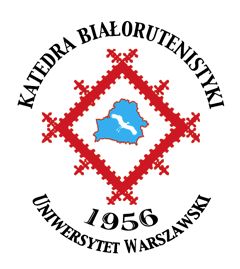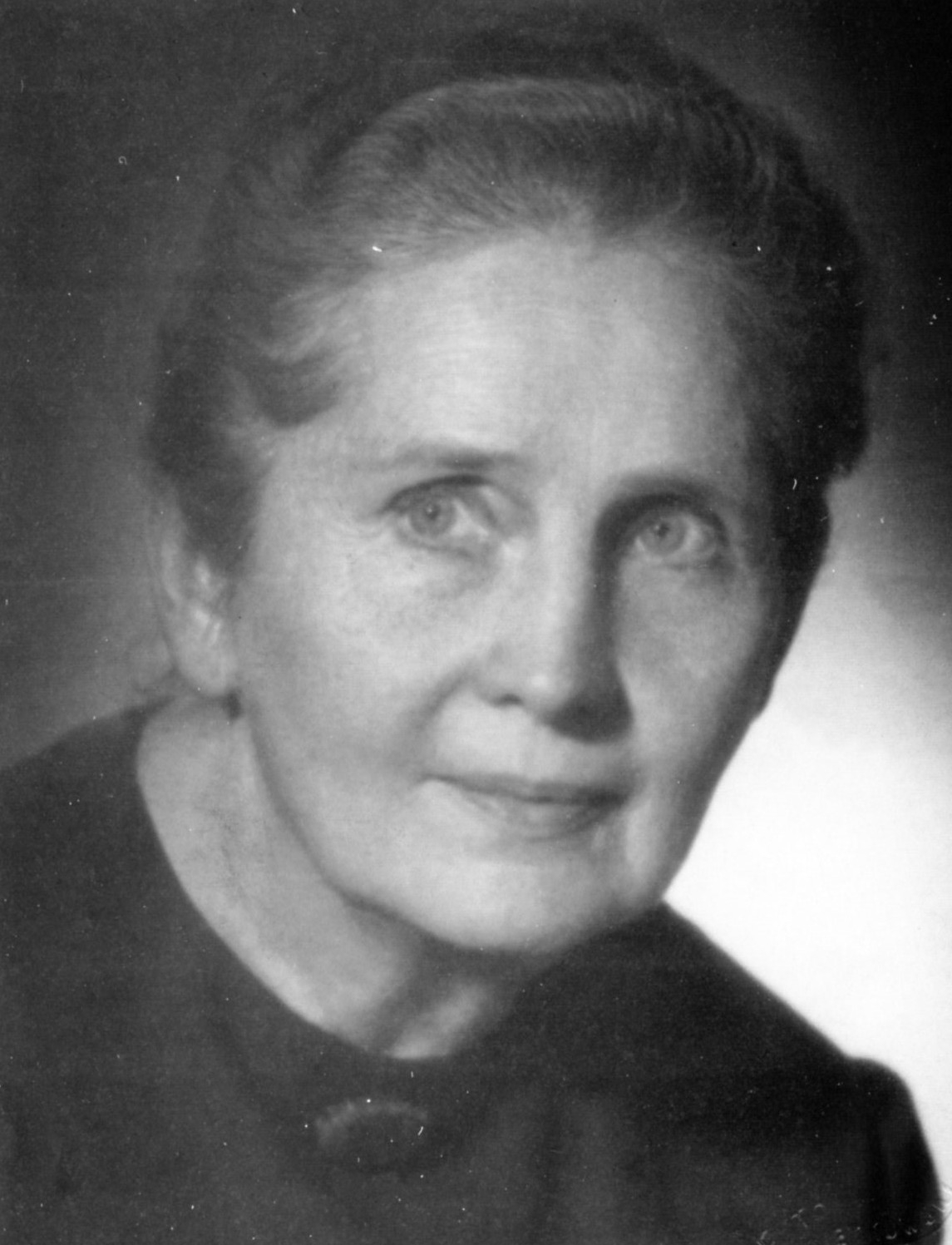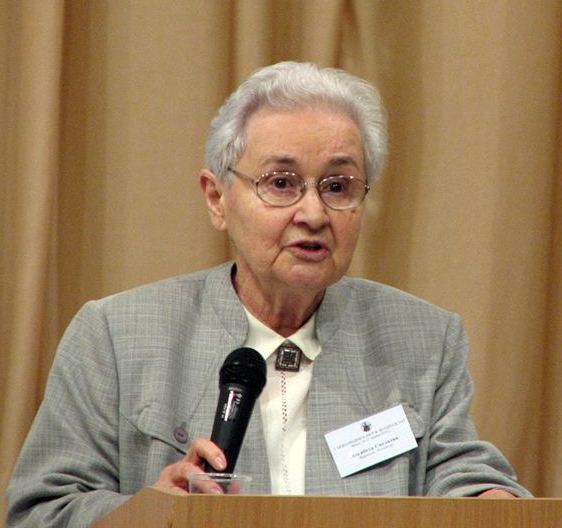HISTORIA
 Katedra Białorutenistyki jest jednostką naukowo-dydaktyczną na Wydziale Lingwistyki Stosowanej Uniwersytetu Warszawskiego. Powołana do życia w roku 1956 jako Zakład Filologii Białoruskiej, w roku 1977 Zarządzeniem Rektora Uniwersytetu Warszawskiego nr 18 z dnia 30 września 1977 r. została przekształcona w Katedrę Filologii Białoruskiej, a następnie w Katedrę Białorutenistyki (Zarządzenie Rektora UW nr 307 z 16 marca 2005 r.). W ciągu przeszło pięćdziesięciu lat działalności Katedra wykształciła liczne kadry białorutenistyczne. Posiada też uznany w świecie naukowym dorobek badawczy.
Katedra Białorutenistyki jest jednostką naukowo-dydaktyczną na Wydziale Lingwistyki Stosowanej Uniwersytetu Warszawskiego. Powołana do życia w roku 1956 jako Zakład Filologii Białoruskiej, w roku 1977 Zarządzeniem Rektora Uniwersytetu Warszawskiego nr 18 z dnia 30 września 1977 r. została przekształcona w Katedrę Filologii Białoruskiej, a następnie w Katedrę Białorutenistyki (Zarządzenie Rektora UW nr 307 z 16 marca 2005 r.). W ciągu przeszło pięćdziesięciu lat działalności Katedra wykształciła liczne kadry białorutenistyczne. Posiada też uznany w świecie naukowym dorobek badawczy.
 Inicjatorem utworzenia, organizatorem i wieloletnim (do 1971 roku) kierownikiem Zakładu była prof. dr hab. Antonina Obrębska-Jabłońska (1901-1994) – wybitna slawistka, autorka licznych prac z zakresu językoznawstwa słowiańskiego, a także wraz z M. Biryłą współredaktorka jedynego aż do 2005 roku „Podręcznego słownika polsko-białoruskiego" (wydanego w 1962 r. przez Wiedzę Powszechną). W utworzeniu i kształtowaniu początków Zakładu nieocenioną pomoc okazał Białoruski Uniwersytet Państwowy w Mińsku, który chociażby przekazał nowej jednostce sporą bibliotekę, a także (w razie potrzeby) delegował do pomocy dydaktycznej swoich pracowników.
Inicjatorem utworzenia, organizatorem i wieloletnim (do 1971 roku) kierownikiem Zakładu była prof. dr hab. Antonina Obrębska-Jabłońska (1901-1994) – wybitna slawistka, autorka licznych prac z zakresu językoznawstwa słowiańskiego, a także wraz z M. Biryłą współredaktorka jedynego aż do 2005 roku „Podręcznego słownika polsko-białoruskiego" (wydanego w 1962 r. przez Wiedzę Powszechną). W utworzeniu i kształtowaniu początków Zakładu nieocenioną pomoc okazał Białoruski Uniwersytet Państwowy w Mińsku, który chociażby przekazał nowej jednostce sporą bibliotekę, a także (w razie potrzeby) delegował do pomocy dydaktycznej swoich pracowników.
 Następczynią prof. A. Obrębskiej-Jabłońskiej w latach 1971-1975 została ceniona białorutenistka i polonistka prof. dr hab. Elżbieta Smułkowa (ur. w roku 1931), badaczka polsko-białorusko-litewskiego pogranicza językowego, a także pierwszy ambasador RP na Białorusi. Prof. E. Smułkowa jest do dziś związana z Uniwersytetem Warszawskim i pracując w Instytucie Badań Interdyscyplinarnych „Artes Liberales" nadal wspiera polską białorutenistykę, głównie poprzez prowadzenie badań nad zagadnieniami pogranicza.
Następczynią prof. A. Obrębskiej-Jabłońskiej w latach 1971-1975 została ceniona białorutenistka i polonistka prof. dr hab. Elżbieta Smułkowa (ur. w roku 1931), badaczka polsko-białorusko-litewskiego pogranicza językowego, a także pierwszy ambasador RP na Białorusi. Prof. E. Smułkowa jest do dziś związana z Uniwersytetem Warszawskim i pracując w Instytucie Badań Interdyscyplinarnych „Artes Liberales" nadal wspiera polską białorutenistykę, głównie poprzez prowadzenie badań nad zagadnieniami pogranicza.
W latach 1975-2004 Katedrą kierował prof. dr hab. Aleksander Barszczewski (ur. w 1930 roku), historyk literatury, badacz polsko-białoruskich związków literackich oraz białoruskiego piśmiennictwa emigracyjnego. Prof. A. Barszczewski pracował w Katedrze od chwili jej utworzenia, wspomagając nie tylko rozwój jednostki, lecz także kształcąc kolejne kadry białorutenistyczne i ugruntowując kontakty jednostki zarówno z innymi ośrodkami naukowo-badawczymi, jak i organizacjami społecznymi. Jego szerokie osiągnięcia na polu literatury (jest autorem kilku zbiorów poezji, zbioru wspomnień, licznych przekładów z języka białoruskiego, członkiem Związku Pisarzy Polskich i Związku Pisarzy Białoruskich) pozwalały Katedrze na nawiązywanie kontaktów także z przedstawicielami sztuki. Prof. A. Barszczewski wspomaga swoim doświadczeniem i wiedzą pracowników i studentów Katedry.
Od października 2004 do 2009 roku funkcja kierownika Katedry Białorutenistyki została powierzona dr hab. Mikołajowi Timoszukowi, profesorowi UW, znamienitemu rusycyście, zajmującemu się przede wszystkim badaniami nad leksykologią i leksykografią białoruską i rosyjską. Prof. M. Timoszuk, autor między innymi wielu cenionych słowników rosyjsko-polskich i polsko-rosyjskich, wspomaga polską białorutenistykę badaniami nad lingwistycznymi aspektami zabytków piśmiennictwa białoruskiego. Dzięki Jego zaangażowaniu w kierowanie Katedrą, w ciągu pięciu lat zwiększyła się liczba pracowników Katedry Białorutenistyki i przywrócone zostały wymiany studenckie z Białoruskim Uniwersytetem Państwowym. Profesor M. Timoszuk do dziś pracuje w Katedrze na stanowisku profesora UW.
Od października 2009 do maja 2014 roku funkcję kierownika Katedry Białorutenistyki pełniła dr hab. Nina Barszczewska, profesor UW, językoznawca, badaczka między innymi historii języka białoruskiego, języka emigracji białoruskiej i zagadnień pogranicza językowego. Kontynuując tradycję swoich poprzedników, prof. N. Barszczewska kładła duży nacisk na rozwój międzyjednostkowych kontaktów Katedry oraz naukowy rozwój kadry.
Od maja 2014 r. funkcja Kierownika Katedry Białorutenistyki została powierzona dr Katarzynie Drozd, literaturoznawcy, badaczce m.in. współczesnej literatury białoruskiej i kultury. Dr Katarzyna Drozd podejmuje inicjatywy mające na celu rozpowszechnienie działalności Katedry Białorutenistyki w środowisku międzyuczelnianym a także wśród młodzieży szkolnej.
Od września 2016 roku Katedrą Białorutenistyki znowu kieruje dr hab. Nina Barszczewska, prof. UW.
Na przestrzeni 35 lat Katedra Białorutenistyki Uniwersytetu Warszawskiego była jedyną uniwersytecką placówką dydaktyczno-naukową poza granicami Białorusi. Fakt ten był bardzo pomocny w staraniach Polaków o otwarcie polonistyk na uniwersytetach państwowych w Brześciu, Grodnie i Mińsku. Katedra Białorutenistyki od szeregu lat współpracuje z takimi białoruskimi instytucjami naukowymi, jak: Białoruski Uniwersytet Państwowy w Mińsku, Uniwersytety Państwowe w Homlu, Połocku i Witebsku, Międzynarodowa Asocjacja Białorutenistów (Mińsk), Związek Folkorystów Białorusi (Mińsk), Miński Obwodowy Instytut Rozwoju Edukacji. Poza tym Katedra utrzymuje ścisłe związki naukowe z Białoruskim Instytutem Nauki i Sztuki w Nowym Jorku oraz z Białoruską Biblioteką im. Franciszka Skaryny w Londynie.
Działalność naukowa pracowników Katedry jest wielopłaszczyznowa i dotyczy badań w zakresie: gwar wschodniosłowiańskich Białostocczyzny, leksykografii polsko-białoruskiego pogranicza językowego, leksykografii dwujęzycznej, mikrotoponimii ziem północno-wschodniej Polski, folkloru białoruskiego Białostocczyzny, współczesnego języka białoruskiego i jego historii, białoruskiego ruchu literackiego w Polsce, stosunku diaspory białoruskiej do roli i miejsca języka w życiu narodu, emigracyjnego ruchu literackiego, współczesnej literatury białoruskiej i jej historii, translatoryki, metodyki nauczania języka białoruskiego. Efektem tych badań są liczne prace monograficzne, opracowania słownikowe, artykuły zamieszczane na łamach czasopism polskich i zagranicznych, podręczniki i skrypty.
Przez lata w Katedrze kształciło się i z nią współpracowało wiele osób, które są dziś uznanymi autorytetami w świecie nauki. To z kadr naszej jednostki wywodzi się troje profesorów białorutenistów z naukowym tytułem profesora w Polsce. Katedra wykształciła także 3 doktorów habilitowanych, dziewięciu doktorów i przeszło czterystu magistrów, którzy do dziś z powodzeniem pracują w związanych z Białorusią szkołach, instytucjach kultury, stowarzyszeniach, mediach i innych.
Pracownicy Katedry aktywnie uczestniczą w krajowym i międzynarodowym życiu naukowym, biorą udział w konferencjach i kongresach (slawistycznych i białorutenistycznych), publikują prace w czasopismach i wydaniach zbiorowych w kraju i zagranicą. Z inicjatywy Katedry Białorutenistyki od roku 1993 jest organizowana Międzynarodowa Konferencja Naukowa Droga ku wzajemności. Materiały z poszczególnych edycji tej Konferencji są drukowane w roczniku "Acta Albaruthenica". W Katedrze są opracowywane i modyfikowane ramowe programy studiów, programy przedmiotowe, skrypty, podręczniki akademickie oraz szkolne (dla szkół wszystkich szczebli), prowadzone są prace leksykograficzne oraz wydawnicze. Od roku akademickiego 2014/2015 wychodząc naprzeciw potrzebom studentów i rynku pracy uruchomiony został nowy program studiów o specjalności filologia białoruska z językiem rosyjskim i angielskim. Pod opieką naszych profesorów obronione zostały liczne prace doktorskie z zakresu językoznawstwa i literaturoznawstwa. Kolejne są w przygotowaniu, co gwarantuje ciągłość kadrową i rozwój naszej Jednostki.
Dzięki wypracowanej przez lata rodzinnej atmosferze, pozytywnemu nastawieniu kadry wykładowczej i niebywałej niekiedy kreatywności naszych studentów, stosunki między wykładowcami a przyszłymi filologami układają się niezwykle harmonijnie. Studenci filologii białoruskiej stają się często inicjatorami ważnych wydarzeń o charakterze kulturalnym czy naukowym, a w realizacji wszystkich ich zamierzeń zawsze chętnie pomagają pracownicy Katedry. Zrzeszeni od 2000 roku w Międzywydziałowym Kole Naukowym "Albaruthenica" bądź działający w Samorządzie Studenckim młodzi adepci nauki nie tylko współpracują z czołowymi organizacjami pozarządowymi działającymi na rzecz Białorusi w Polsce, organizują samodzielne wyprawy badawcze na Białoruś, lecz także włączają się w promocję badań białorutenistycznych między innymi poprzez organizowanie studencko-doktoranckich konferencji.
The Department of Belarusian Studies is a research and training unit functioning as a part of the Department of Applied Linguistics at the University of Warsaw. Established in 1956 as a Centre for Belarusian Philology, it was transformed into the Department of Belarusian Philology by virtue of the Resolution of the Rector of the University of Warsaw No 18 of 30th September 1977, and then the Department of Belarusian Studies (Resolution of the Rector of the University of Warsaw No 307 of 16th March 2005.) Throughout the period of almost fifty years a number of specialists in Belarusian Studies have graduated from the department. It can also boast recognised and extensive academic work.
A founder, organiser and the head of the department for a great many years (up till 1971), Professor Antonina Obrębska-Jabłońska (1901-1994) was a great specialist in Slavic languages as well as the author of works on Slavic languages and co-editor, together with Mikołaj Biryła, of Podręczny słownik polsko-białoruski (Eng. Pocket Polish-Belarusian Dictionary) published by the Wiedza Powszechan Publishing House, which was the only resource book of this kind until 2005. In the course of establishing and forming the department it was Belarusian State University, Minsk, that proved to be of invaluable help: not only did the university give a large collection of resource books to the new unit but it also sent its employers to Warsaw to offer help with teaching Belarusian, responding to current needs at that time.
A renowned specialist in Belarusian and Polish Studies, Professor Elżbieta Smułkowa (born in 1931) succeeded professor Obrębska-Jabłońska as the head of the department in the period between 1971 and 1975. With her research interests connected with the problem of the Polish, Belarusian and Lithuanian linguistic borderland and a former career as the first ambassador of the Republic of Poland in Belarus, professor Smułkowa is still an active employer of the University of Warsaw, working in the Institute for Interdisciplinary Studies "Artes Liberales" and supporting research in Belarusian Studies in Poland mainly by exploring the problem of the linguistic borderland.
Throughout the period of 1975–2004 the department was led by Professor Aleksander Barszczewski (born in 1930), a literary historian conducting research in Polish and Belarusian literary correlations as well as the literature of Belarusian emigration. Professor Barszczewski has been working in the department since its establishment, not only supporting its development but also teaching next generations of specialists in Belarusian Studies and fostering relations between the department and other research and teaching units or social organisations. His great achievements in the area of literature (he is the author of several collections of poetry, memoirs, as well as the translator of a great many Belarusian texts, being at the same time a member of the Association of Polish Writers as well as the Association of Belarusian Writers) made it possible to establish relations between the department and representatives of the world of art. Professor Barszczewski has been supporting both the employers and students of the department with his experience and knowledge.
Associate Professor Mikołaj Timoszuk, a well-known and recognised specialist in Russian Studies carrying out research mainly in lexicology and lexicography in Belarusian and Russian, was the head of the Department of Belarusian Studies from October 2004 till 2009. The author of recognised Polish-Russian and Russian-Polish dictionaries, professor Timoszuk has been supporting Belarusian Studies in Poland mainly by investigating linguistic aspects of classical texts in Belarusian. Thanks to his commitment to running the department, not only did the number of employers double in the period of five years but also the practice of student exchanges with Belarusian State University was introduced again. Professor Timoszuk has been working in the department, holding a post of associate professor.
From October 2009 till May 2014 the Department of Belarusian Studies was run by Associate Professor Nina Barszczewska, a linguist and researcher dealing with the history of Belarusian, language of Belarusian emigration and questions of the linguistic borderland. Following her predecessors, professor Barszczewska strongly emphasised the importance of developing relations between the department and other institutions as well as fostering its scientific development.
Following May 2014 the department of Belarusian Studies has been led by Katarzyna Drozd, PhD, a specialist in literary science interested in contemporary Belarusian literature and culture. Katarzyna Drozd has been motivating action to promote the activity of the department among other universities and schools.
For thirty-five years the Department of Belarusian Studies at the University of Warsaw was the only research and teaching unit of this kind functioning outside Belarus. This fact proved very helpful for Poles striving to open faculties of the Polish language at the state universities in Brest, Grodno and Minsk. The Department of Belarusian Studies has been cooperating for years with the following Belarusian academic and research institutions: Belarusian State University in Minsk, State University in Gomel, Polotsk and Vitebsk, the International Association of Belarusian Studies (Minsk), the Association of Belarusian Folklore Studies (Minsk) or the Minsk Institute for Educational Development. Additionally, the department has been maintaining close relations with the Belarusian Institute of Arts and Sciences in New York and Francis Skaryna Belarusian Library in London.
The employers of the department have developed widespread research interests which include studies of Eastern Slavic dialects in the Białystok region, lexicography of the Polish-Belarusian borderland, bilingual lexicography, microtoponymy of the Northeast region of Poland, Belarusian folklore in the Białystok region, contemporary Belarusian and its history, Belarusian literature in Poland, the Belarusian Diaspora and the role and importance of the language in the life of the nation, literature of the Belarusian emigration, contemporary literature in Belarusian and its history, translation studies or methods of teaching Belarusian. As a result, the department can boast a number of published works, including books, dictionaries, articles published in Polish and international journals, student books or other educational materials.
A number of internationally recognised researchers have been studying at and cooperating with the department for years. Three specialists in Belarusian Studies holding a full professorship title have graduated from the department. It can also boast three assistant professors, nine graduates holding a PhD degree and four hundred holding an MA degree, all of whom have been successful, working in schools, cultural institutions, associations, media and other institutions connected with Belarus.
The employers of the department have been participating actively in the scientific life in Poland and abroad, taking part in conferences and congresses (for specialists in Slavic and Belarusian Studies) as well as publishing papers in journals and edited books in Poland and elsewhere. The Department of Belarusian Studies is the originator of the International Conference Droga ku wzajemności (Eng. Road to Being Reciprocal) which has been organised since 1993. Materials presented during the conference are later on published in the journal Acta Albaruthenica. The department is also responsible for drafting and modifying programmes of studies, course curricula, educational materials or student books (for all educational levels, including higher education); it also runs a number of lexicography and publishing projects. Addressing the demands of the job market as well as students' expectations, a new studies programme of Belarusian Studies with Russian and English has been implemented since the academic year 2014/2015. A number of doctoral dissertations in the area of linguistics and literary studies supervised by the professors working in the department have been defended so far. There are yet more to come, which means there will be new employers as well as development perspectives in the department.
Thanks to the cordial atmosphere created over the years, a positive attitude of the lecturers and creativity of our students which may sometimes be unexpected, the relations between the lecturers and graduates-to-be have been extremely harmonious. Students of Belarusian Studies often initiate important cultural or scientific events with the help of the employers who are always willing to offer their support. Working as members of the Albaruthenica Interfaculty Science Society established in 2000 or as members of the student union, young students of Belarusian not only cooperate with leading non-governmental Polish organisation supporting Belarus or individually organise scientific trips to Belarus but also work towards promoting Belarusian studies by, for instance, organising conferences for undergraduate, graduate and postgraduate students.